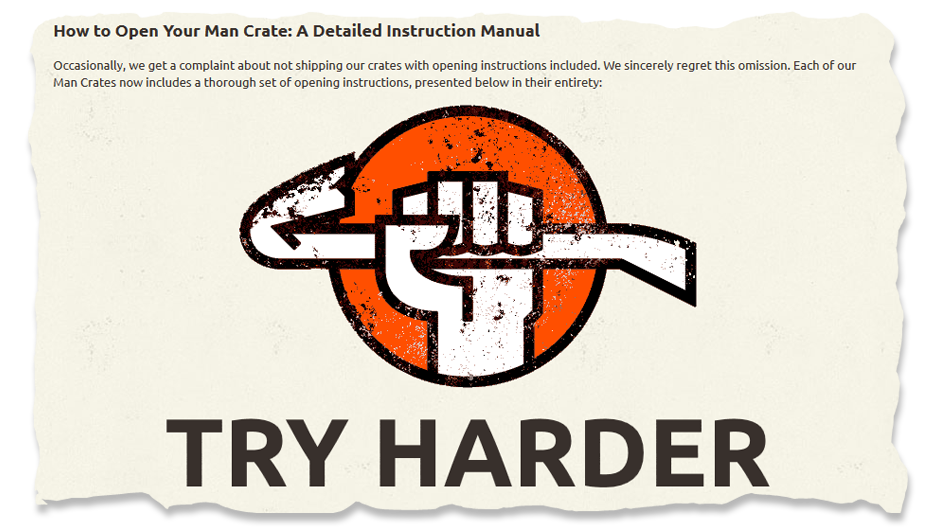5 Questions To Ask Yourself When Building Your Business

Picture this:
You’re backstage, standing in a dark corner with your eyes closed. Your palms are sweaty and your heart is pounding as you hop up and down with anxious excitement. It’s exactly 09:59 a.m. and in less than sixty seconds, you’ll be stepping in front of the largest crowd you’ve ever spoken to.
Thoughts riddle your mind:
Will they like me? Is my speech good enough? Do I even remember my speech? Did I prepare enough? What if the sound system sucks?
Around the 30 second mark, you gently pat the cold sweat from your forehead as the silent anticipation of thousands fuel your excitement.
Suddenly, the emcee starts to recite your introduction. You begin to countdown the last 10 seconds with eye blinks and slight head nods…
3…
2…
1…
It’s show time.
Before you know it, you’re walking up the stage into waves of applause, shouts and raised eyebrows. You humbly nod, give thanks, say your very first words and go on with your speech.
How do you imagine your speech going?
- Are you at all nervous about how valuable your audience feels you are to them?
- Are you paying attention to facial expressions and body language as you look through the crowd?
If you’re a normal human being, you probably are thinking about these things (and if not — well, then you must be superman).
What’s ironic, though, is that when it comes to business, many people tend to be on the complete opposite end of the spectrum.
Instead of considering their audience first (customers, vendors, followers, etc.), people often worry about themselves and what’s to gain.
“This dude wants my help for free? I don’t have time for that!”
“How can I get Jack and Sally to pay me some money the first time they see my face?”
“Who wants me to do an interview for what? Their podcast hasn’t even launched! No thanks…”
Now — don’t get me wrong. In some circumstances, there are times when we have to turn down the interview request date, or kindly request that a host reach a certain number of episodes before committing to an interview (thinking about you, Seth Godin).
What we’re discussing, though, is forfeiting value for personal greed. And downright denying someone’s request for your time because you simply don’t know them, don’t care about them, or worse yet – because they don’t offer you any immediate money, is a sure-fire strategy to tank any possible relationship.
You see, being on stage and speaking in front of thousands with their eyes and ears pointed at you is a lot like operating a business. But most people just don’t seem to look at it this way.
Obviously, there’s a bend in the way people think when it comes to physically being on stage versus operating a business.
But in your stretch to reach your audience in a way that builds a meaningful and valuable business, whether through speaking live, recording a podcast or through written words on a screen, you should consider your audience in ways you would as if you were on stage, live, in front of thousands.
Note: for all intents and purposes, I use the term ‘audience’ in place of ‘customers, prospects, leads’, etc.
Always ask Yourself These 5 Questions:
- Who is my audience?
- Is everything I do in support of benefiting my audience?
- Am I being authentic? (not “faking it to make it” – biggie.)
- Am I passionate about what this stands for?
- Why should anyone pay attention to me?
Let’s dive into a brief discussion on each of these questions and learn how they will help make you more successful.
1. Who is my audience?
In business, we are wisely taught to “find our avatar,” the personification of our perfect prospect. This is a single person example of who would most benefit from our value proposition.
When asking yourself, “who is my audience?” make sure you are very, very specific:
How old is he/she? Male or female? What does he do for a living? What is his background? Is he educated? Is he single? Is he happy in life? Does he enjoy the finer things, or is he more of an average Joe type who doesn’t need much to be happy? … we could go on and on.
When constructing content, releasing a product or even engaging in discussion with someone about your business, it’s important that you ask yourself, “Who is my audience?”
Do this enough, and you’ll soon find that serving your specific market is second nature with everything you do.
2. Is everything I do in support of benefiting my audience?
Let’s consider a scenario: It’s Saturday afternoon and you decide to head over to the car spa and have your car detailed. You arrive, check in your car, and hang out in the waiting area. While waiting, the owner of the car spa walks up to you and says, “Hey I have some really cool dog collars for sale. Will you buy one?”
Extreme example, I know. But stuff like this happens all the time online, and it’s nonsense!
Chances are, you’d never return to that car spa because the owner was only looking to benefit himself in a way that added zero value to his customer.
Let’s instead imagine the owner walking up and saying, “Hey there, I’m Jim and it’s great to have you… we really appreciate you bringing in your car, and we’re leaving you 3 free air fresheners inside your car for you to use. Just our way of saying thanks!”
The example shifted from the owner benefiting himself, to benefiting his audience (in this case, customer).
Chances are, as you go through each air freshener, you’ll remember that moment. Even the scent might remind you of your awesome experience at that particular car spa every time you get into your car! You get a great smelling car, and the owner reaps the reward of his customer thinking of his business more often because he provided a benefit and immediate value.
Next time (and every time thereafter) you make a decision in your business, make sure you first ask yourself, “does this benefit my audience?”
3. Am I being authentic?
If there’s one way to quickly destroy everything you’ve built and are trying to build on, it’s making up some fake representation of who you are and what you stand for.
It is a HUGE turn off to the public when they find out you’re different than you’ve led them to believe. This is why politicians have used this tactic against one another – it works.
Human beings are naturally skeptical of people who they don’t know – especially when put in front of a decision to either trust or not trust someone before taking any action (even if it’s simply giving up their email address).
Politicians reinforce this natural skepticism by reinforcing it through advertising that leads people to believe that their opponent isn’t who he says he is, or doesn’t really stand for what they say they stand for.
Politician or not, you’re in the same boat my friend. And your success depends on “getting this”.
Be real. Be you. Stand up for what you believe. Don’t chase the cheese if it leads to a place where you’re left feeling, “this just isn’t me”.
We live in a world where transparency is more and more important because information about you is out there, and it’s pretty easy to find. So make sure that information is all consistent with who you say you are.
It’s important to ask yourself, “am I staying true to who I really am and what I want to become known for?”
4. Am I passionate about what this stands for?
I know that everyone talks about “passion” and “being excited” with what you’re doing, but the truth is – interests and excitement can fade over time. That’s human. But reflecting on whether or not you’re passionate about what you do and what that stands for, has to become a weekly habit, in my opinion, because otherwise we never know WHEN it’s time to delegate a task, or slightly pivot our business.
Without constantly reflecting on what we enjoy, we run the risk of delusion and ultimately letting value delivery slip until failure becomes inevitable.
Don’t fake yourself out. If you aren’t passionate about something, stop doing it as soon as you can. The time you’ll free up, by either delegating a task or pivoting your business entirely, will be spent in an exponentially more productive way in creating value for others. When that happens, success and freedom is much more likely.
You’ll never build your business if you’re not passionate about your business.
5. Why should anyone pay attention to me?
Straight up. What makes you and your business stand out?
Really – think about that: What is different about what you’re building? What you’re saying? What you’re offering? Why should anyone in your market pay attention to you?
Business schools will teach this as a “Unique Selling Proposition”, but I think we should drop the ‘selling’ — for now. There’s no doubt that your positioning in your marketplace is intended to sell what you offer, but for the sake of creative thinking, think more about how you can offer a specific benefit in a unique way. Do this, and you’ll easily answer the question: Why should anyone pay attention to me?
Here’s a great example:
A company called Man Crate boxes and ships ‘manly’ things (like liquor, custom etched bar glasses, gadgets, and grill tools), and ships them off in a crate that you have to literally pry open with a crowbar (which comes strapped to the crate itself).
Immediately, they stand out. Moreover, here’s what their opening instructions look like:

Sounds bravado and slightly against the grain, but they know their audience (men), and they know how to stand out to attract them. And aside from coming off as “rough around the edges”, their customer service ratings are nearly 5 / 5 stars.
Remember: The marketplace is a very crowded space. If you want to make it out there, it’s imperative that your business, and everything you do, has a trait that makes it stand out.
So, why should anyone pay attention to you? Spend time on this.
At the end of the day,
there’s no real difference than being on stage in front of thousands, or being out in the trenches building your business.
Always consider your audience and how they’ll benefit from your business. Stay true to your core self, reflect on your passions, adjust when needed, and stand out in ways that others don’t.
Have you asked yourself any of these questions lately? Is there one that resonates with you most? Can I personally help you stay accountable?
Let me know in the comment section below. I’d love to discuss it with you!










